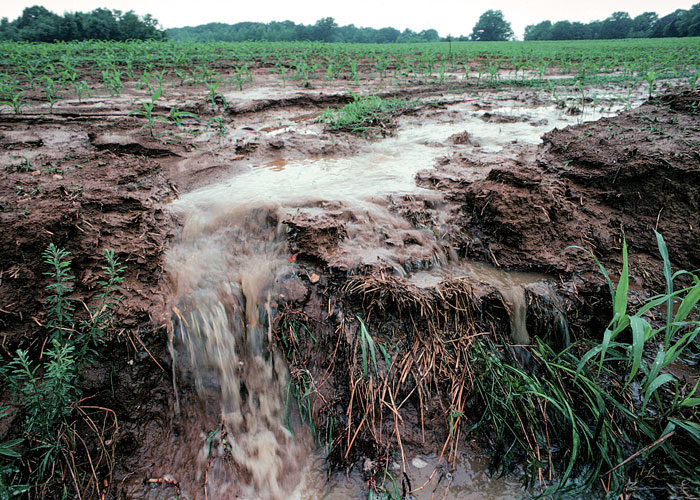No-Till Farmer
Get full access NOW to the most comprehensive, powerful and easy-to-use online resource for no-tillage practices. Just one good idea will pay for your subscription hundreds of times over.

RAINSTORM RUNOFF. Topsoil, as well as farm fertilizers and other potential pollutants, run off these unprotected farm fields in Iowa when heavy rains occur, leading to hypoxia and other problems far downstream.
Long-time ag economist John Ikerd says U.S. agriculture is at a major crossroads with significant changes in the offing, but he says no-till farming will be important regardless of the ultimate future direction of the industry.
Ikerd, a retired University of Missouri professor and author, spent much of his career doing research in colleges of agriculture at four land-grant universities studying the economics of American agriculture through a period he labels the “industrialization of farming.” He says, looking back, there were many unintended consequences of the industry’s concerted effort to boost efficiency, and many of farming’s current challenges have roots in that era that must be addressed.
“We’re in the midst of a battle for the future of farming in this country,” Ikerd says. “I think there’s mounting evidence of growing public concern for what I call the ‘industrial agro-food system’ we have today, a system that in my opinion is unsustainable.”
Ikerd says agricultural sustainability depends upon its ability to meet the needs of people in the present without diminishing opportunities for those of the future.
“We’re talking about the industry’s ability to serve the consumer, of course, but also the needs of producers and their communities,” he explains. “The nation needs an agriculture that can keep on producing indefinitely into the future.”
Ikerd explains society’s increasing concern with the following problems facing today’s agro-food system in the U.S. as reasons he thinks the system is unsustainable: